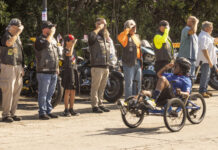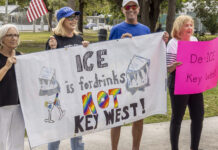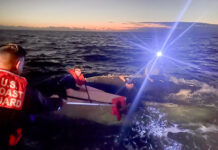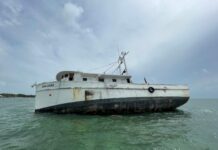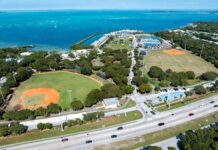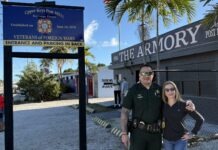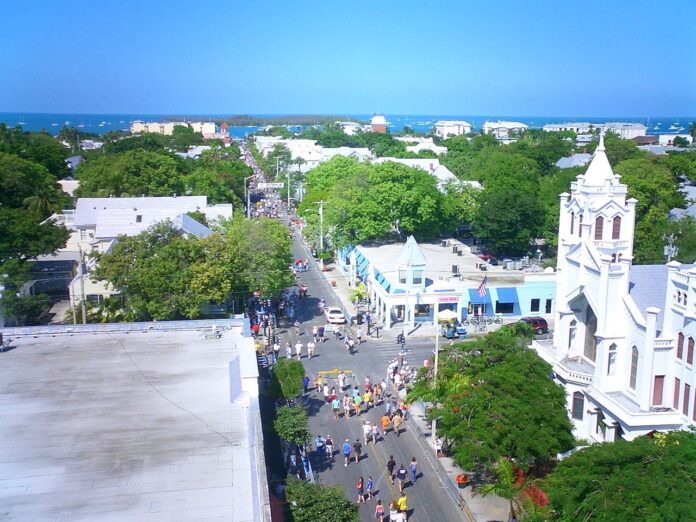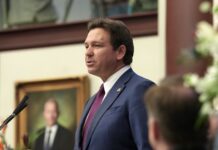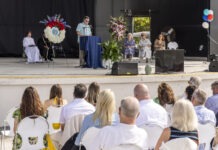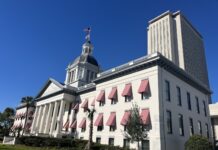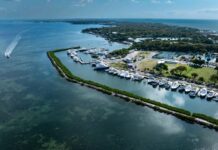Key West needs smoother roads, flooding solutions, a new community pool, a new fire station, a better Bayview Park and an enhanced amphitheater.
But it will need voters’ approval in November to pay for these and other major projects with a long-term financing option that would resemble a $226 million line of credit in the form of general obligation bonds.
The city need not use the entire amount, but will have access to the money as needed for specific projects that must be approved individually by a super-majority of the seven-member city commission. The city has 30 years to repay — with interest — any bond money it spends on projects. The repayment will come from city revenues, grant money and yes, perhaps property taxes, but will be spread out over 30 years.
But, Commissioner Mary Lou Hoover pointed out, the bonds will enable the city to complete a project more quickly rather than spreading it out over several years while awaiting the next year’s budget and funding. Such delays increase the cost of projects as prices inevitably rise.
For Key West voters, the November general election ballot will include four separate questions, each one pertaining to a different category of projects that can be funded with bond money: a.) parks, recreation and cultural facilities; b.) transportation, road and parking projects; c.) police, fire and public safety investments; d.) flooding, storm and climate change adaptation projects.
The wording of each question is identical, except for the category and the total monetary amount available for projects in that category.
At a July 18 meeting, the commission lowered the total amount of “credit” it will ask voters to approve, from $300 million to $226 million. Commissioners will spend the next few months answering questions about the bond referendums and explaining how the funding, which is common in cities and counties, works.
Commissioner Sam Kaufman suggested the reductions in each of the four funding categories, lowering the total from $300 million to $226 million, with the hope it will be more palatable to voters.
After more than two hours of discussion, a majority of commissioners decided to ask voters to approve: $50 million for parks, recreation and cultural projects; $51 million for transportation, roads and parking; $60 million for police, fire and public safety projects and $65 million for flooding mitigation and climate change adaptation, for a total of $226 million.
Commissioners Lissette Carey and Billy Wardlow voted against all four items, with Carey having repeatedly expressed her opposition to such a large dollar amount.
“I don’t know why we’d ask the public to approve $300 million all at once when we can do referendums for individual bonds to pay for individual projects each year,” Carey said.
Kaufman repeatedly pointed out the projects – such as paving of streets, a new fire station on Flagler Avenue, and the replacement of the Martin Luther King community pool – that have been postponed year after year due to budget shortfalls.
“I don’t want to sit through another budget cycle where there’s no money for these projects,” Kaufman said.
Mayor Teri Johnston and commissioners Jimmy Weekley and Hoover favored asking voters to approve the full $300 million in bonds, but ultimately agreed to the reduced amounts.
“We keep saying we’re going to spend $300 million, but we’re not,” Johnston said. “This is like having an American Express Black Card. You have a credit limit, but you’re not going to run it up to the limit, and you only pay back and pay interest on the amount you spend. If we don’t approve this, I think we’re selling residents short and getting cold feet on this way too soon.”
She emphasized that the voters have a right to decide.
“And I think we’re saying this incorrectly,” Johnston said. “We’re not talking about spending, spending, spending. We’re investing this money, over 30 years, in the community. We need critical infrastructure projects for flooding and climate change. We need to fix our roads and only have enough money in the budget each year for four blocks. For the amount of money we’re charging visitors here, we’re getting a little ragged. We need a facelift.”
Weekley agreed, adding that asking the voters was the definition of democracy. “I think we owe the voters the opportunity to give their opinion on this issue.”
Hoover was also in favor of the full $300 million in bonds, pointing out the constant flooding issues endured by residents in her district and the exorbitant cost to solve those problems.

